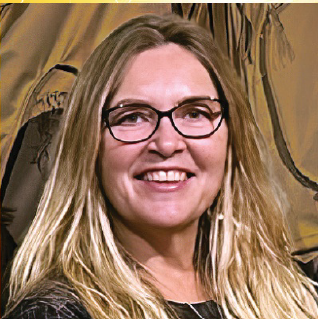Solar Energetic Particles and Space Weather: Causes and Consequences
Solar Energetic Particles and Space Weather
Date and Time
Location
Hosts
Registration
-
 Add Event to Calendar
Add Event to Calendar
Loading virtual attendance info...
- Ann Arbor, Michigan
- United States 48109
- Room Number: Room 1018 Dow
Speakers
Dr. Christina Cohen of TU Wien, Christian Doppler Laboratory for Multi-Scale Process Modeling of Semiconductor Devices and Sensors.
Solar Energetic Particles and Space Weather: Causes and Consequences
Space weather has been identified as a national and international priority which, by some estimates, could cost the US over $40B a day during an extreme event. Different aspects of space weather affect myriad assets including spacecraft, astronauts, commercial airline flights, power grids, and even oil pipelines. Solar energetic particle (SEP) events are one component of space weather and the desire to predict their occur-rence and characteristics is strong. Despite immense progress over the last few decades in understanding the generation of SEPs and increases in the number of spacecraft measuring them, predictions are hampered by what we still do not understand and by limited observations. In this talk, we’ll discuss space weather hazards focusing on SEP events – what we know, what we don’t know, what we’re missing. We’ll highlight specific space missions, including Parker Solar Probe and Solar Orbiter, making revolutionary observations closer to the Sun than ever before.
Biography:
Christina M. S. Cohen is a research scientist in the Space Radiation Laboratory at the California Institute of Technology. Currently, her work focuses on energetic particles in space, particularly those resulting from solar activity, but she has prior experience studying energetic particles in the Jovian system and the composition of the solar wind. Cohen is involved in the design, building and testing of instruments that have flown and will fly on a number of NASA satellites as well as analysis of the data returned from them. She is a past president of the Space Physics and Aeronomy section of the AGU, an AGU Fellow, Principal Investigator of the Solar Isotope Spectrometer and Cosmic Ray Isotope Spectrometer on Advanced Composition Explorer (ACE), and Deputy Principal Investigator on the Integrated Science Investigation of the Sun on Parker Solar Probe and on the Low Energy Telescope experiment on STEREO. Cohen has received NASA awards for her work on the Ulysses, Wind, Advanced Composition Explorer, and Parker Solar Probe missions.
An IEEE Southeastern Michigan Section event. All are welcome. Consider becoming an IEEE member if such similar events are of professional/academic interest to you


